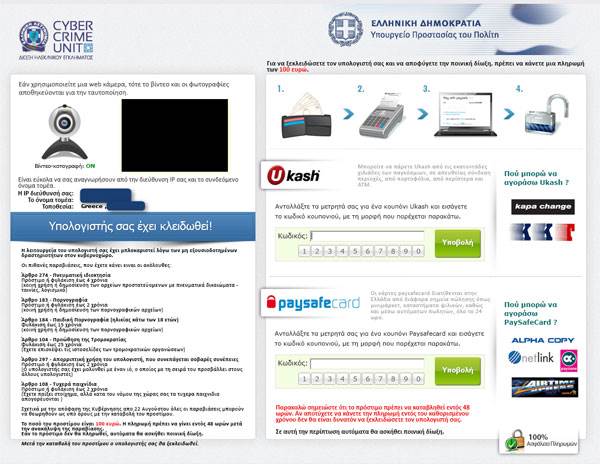PRESS RELEASE
Greek Electronic Crime Division, informs Internet users about the appearance in our country of a malicious software – digital threat, «Crypto-Malware» type
Target through the software is the payment of money as a ransom to unlock – decrypted digital files and data stored on the user’s computer and infected by the virus
Malicious software called «Locky», may affect all OS versions and is spread mainly through infected emails
The Electronic Crime Division of the Greek Police, inform citizens about the appearance in our country, malware, called «Locky». This malware is an evolution of known malicious «Cryptolocker» or «Ransomware» software, one of the digital type Crypto-Malware threats and may affect all operating systems.
In particular, this malware is spreading – mainly transmitted through email messages carrying infected attachment, and when we visit insecure or infected websites.
After installation of the operating system, this malicious software by using a sophisticated encryption system encrypts – locks various types of digital files (indicatively: * .doc, * .docx, * .xls, * .ppt, * .psd, * .pdf, * .eps, * .ai, * .cdr, * .jpg, etc.), stored in the user’s computer is infected with the virus, giving them the suffix ” locky ”, while to unlock the files, perpetrators require the user to pay a sum of money.
Payment of the amount proposed to be done through an anonymous browser, using digital currency bitcoin (BTC), then the message displayed to the user with instructions and instructions for payment.
Inviting Internet users not to pay the money requested in order to discourage such illegal practices and to not spread phenomenon and should be very careful and take digital protection and safety measures to prevent infestation by the aforementioned malware.
Specifically:
- Citizens who receive emails from unknown senders or unknown origin, asked not open the links (links) and not to download attachments contained therein for which uncertainty about the sender and the attachment content file.
- Moreover, users should be extremely suspicious of the email messages as the sender appear to be a service or company.
- It recommended that you typed the addresses of websites (URL) in the browser (browser), instead of using hyperlinks (links).
- Use genuine software and updated regularly (updates), while there should be always updated safety program (a ntivirus) computer.
- Na control and are always updated version of their operating system.
- Na create backup copies of files to their device (backup) at regular intervals, to external storage so that in case of attack from malicious software, to be able to restore their files.
Recall that for such cases, citizens may contact the Electronic Crime Division at the following contact details:
Telephone: 11188
Sending e-mail to: [email protected]
Through the application (application) for smart phones (smart phones): CYBERKID
Through twitter: @CyberAlertGR






